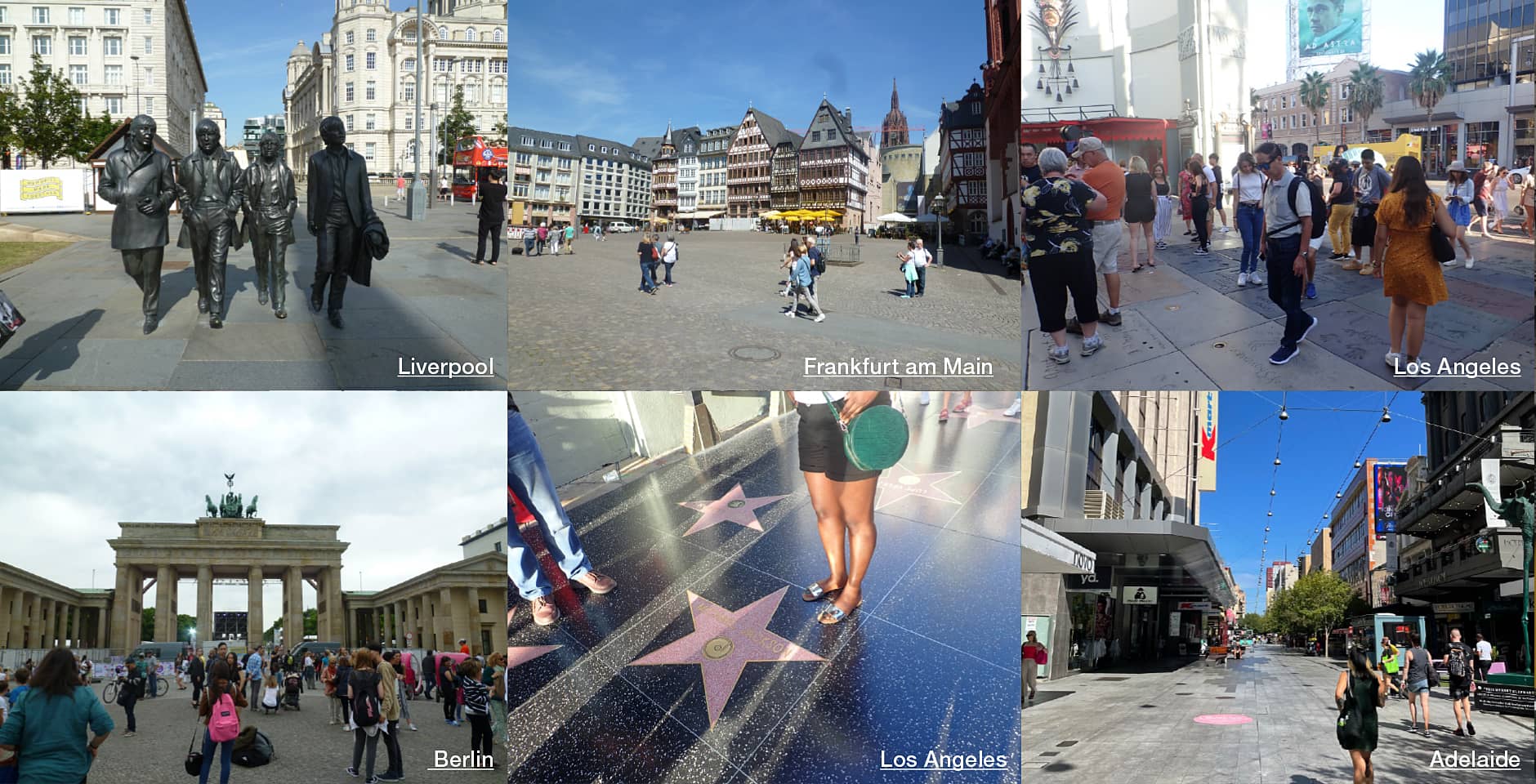In this age of mobility of people, goods, capital, information, and everything else, the nature of tourism is undergoing a dramatic transformation. Professor Hideki Endo focuses on "tourism mobilities" to capture the ways in which tourism is disrupting the nature of society and culture in an increasingly mobile society.
The expansion of what constitutes tourism through mobility
Contemporary society is said to be characterized by mobility. According to Hideki Endo, “Globalization and the development of mobile technologies have brought about a world in which everything is constantly on the move, including people, goods, capital, information, ideas, and technology.” In this context, his research focuses on tourism mobilities, or the idea that tourism has also become an important form of mobility.
A society based on mobility is drastically changing the meaning and nature of tourism. Even the distinction between tourists and local residents is becoming less clear. “Imagine you are visiting Okinawa for sightseeing. Many of the local residents once visited Okinawa as tourists and ended up moving there because they were attracted by the lifestyle and culture. What’s more, some of these transplants play Okinawan folk songs for tourists at minyo bars in town,” says Endo. From this, we can see picture that cannot be captured by the conventional image of the word “tourist” based on a definition of local residents which assumes they have lived in the area for a long time.
Endo continues: “Mobility has made tourism a social phenomenon that is disrupting the very fabric of society and culture.” One area Endo is focusing on in the relationship between tourism and popular culture.
“One thing I've found intriguing lately is Korean saengil (birthday) ads. It is one of the so-called ‘fan support activities’ in which fans pool their money together to pay for an ad congratulating and supporting their favorite K-pop idols on their birthdays.” Saengil ads are placed mainly on outdoor billboards, electronic billboards, and digital signage in large cities. Endo notes that fans not only post ads, but also travel to far-flung locations to see where these ads have been posted. “This kind of mobility ultimately creates tourism and tourist destinations. In other words, mobility has expanded the concept of tourism to include things that were not previously considered tourism,” says Endo.
Another example that Endo points to is so-called anime pilgrimages. This is the phenomenon of fans visiting the places where an anime was set or the places associated with the music that is performed in it. Conventionally, many of these pilgrimages were developed in the places where anime were set in an effort to attract tourists, but there have also been cases where tourists organically create these pilgrimages. “A phenomenon is taking place in which a shrine with the same name as a member of an idol group attracts attention from fans and becomes a sacred place. The emotions of the fans bring about mobility, which in turn creates new sacred places and tourist attractions,” explains Endo.
Endo is also conducting research on "dark tourism" as a new form of tourism. The term "dark tourism" refers to the act of visiting places linked to death and suffering brought about by man-made causes such as war, terrorism, social discrimination, political repression, pollution, and accidents. “Originally, the word tourism was used to showcase something wonderful and positive, as implied by the character for 'light’ in the Japanese word. Dark tourism, on the other hand, showcases the negative side, or the 'darkness,' of a place,” explains Endo, who says this can be seen as another way to disrupt the concept of tourism. He continues:
“These examples highlight how, in today's mobile society, tourism embraces various social phenomena to change the way we think about culture and society, while at the same time being transformed by them.”

Networks for “giving the gift of hospitality” created by both tourist destinations and tourists
As the definition of tourism changes, there is one thing that Endo points out will become more important than ever— the significance of giving the gift of hospitality. “In tourist destinations, it is considered normal for local residents to entertain tourists, but that does not mean it is okay to disrupt local life and culture as long as tourists are enjoying themselves or paying for it,” says Endo. While the conventional meaning of tourism as local residents entertaining tourists has been emphasized, problems such as overtourism have emerged in recent years.
Endo says what is needed is an attitude of hospitality on the tourist side as well. “While local residents welcome and entertain tourists, tourists are also expected to show an interest in the local lifestyle, culture, and nature, and to treat the region with respect. This can be called ‘the gift of hospitality’ that tourists give to the local community.” Valuing and nurturing local culture and nature will revitalize the tourism industry and enrich the region. If this can be done, local residents will be able to entertain tourists with even more warmth. “It is important to develop these kinds of ‘networks for giving the gift of hospitality,’” says Endo. The aforementioned dark tourism can also be seen as a form of hospitality extended toward local communities, as it involves reflecting on, mourning, and praying for the sorrows of the people in the region, allowing tourists to empathize with them and engage with the local society.
When you go to an unacquainted land, you are exposed to a culture, values, and way of life that is different from your own. In other words, says Endo, tourism is a great opportunity to learn the importance of understanding and coexisting with others who are different from us. He concludes: “I believe that the new types of tourism that expand by way of mobility will serve as important elements in paving the way for an inclusive society in the future.”